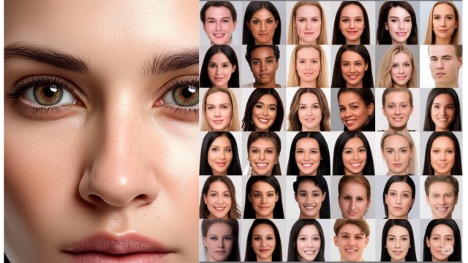
Singapore – 27 August 2025 – As generative AI continues its rapid evolution, a new crisis has emerged—one that strikes at the heart of online interaction: Can we still trust what we see, read, or hear? From deepfakes and AI-generated reviews to cloned voices and hyperreal chatbots, digital spaces are now flooded with content that is increasingly indistinguishable from genuine human input.
This growing “authenticity crisis” is challenging the way societies communicate, do business, and even govern. As digital trust erodes, a global movement has taken shape—spanning technologists, researchers, and startups—racing to develop systems that verify and preserve human identity in the age of AI.
Among these efforts are biometric-led initiatives such as World.org, which employs iris scanning to verify personhood, and Humanity Protocol, which uses palm biometrics. These technologies offer powerful verification tools, but have sparked global debates over surveillance, ethical data handling, and the centralization of sensitive biological information.
However, a different philosophy is gaining traction—one that views human identity as more than a fingerprint, palm or iris pattrens. It emphasizes a more comprehensive, multi-dimensional representation of humanity in digital form.
Enter twin3.ai, a project pioneering the concept of “Proof of Authenticity” (PoA). Rather than relying on a single verification method, twin3 integrates diverse data points—from standard Web2 credentials (like Google OAuth or reCAPTCHA) to cutting-edge biometric inputs—to construct a dynamic Humanity Index.
At the heart of its model lies the Twin Matrix: a 256-dimensional profile that users voluntarily populate with data spanning physical traits, skills, interests, digital habits, and social attributes. This data is encrypted, anonymized, and anchored to the blockchain through a Soulbound Token (SBT)—a non-transferable digital identity that users fully own and control.
This approach frames digital authenticity as a tool for empowerment, not surveillance. By giving users full ownership of their digital identity, the system is designed to enable verified, privacy-preserving interactions online. The goal is to build a new foundation for digital trust, one controlled by individuals rather than centralized platforms.
In a world increasingly driven by automation, this kind of verified, nuanced human data becomes a critical resource. It’s essential for training AI models that are aligned with human values, for ensuring businesses engage with real customers, and for empowering individuals to own their identity in an increasingly synthetic world.
Still, experts warn that the road ahead is complex. Balancing security with user privacy, navigating a patchwork of global regulations, and ensuring these systems are inclusive for all remain key challenges for the entire industry.
Yet momentum is undeniable. As AI-generated content becomes the norm, the push for a new digital identity framework is no longer optional—it is foundational to the future of our digital lives.


















